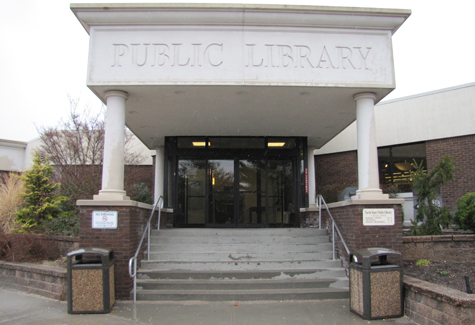Audit: North Shore Library overcharged taxpayers

Leaders of the North Shore Public Library may need to take out some books on financial accounting.
The office of State Comptroller Thomas DiNapoli issued an audit in late March reporting that the library district consistently overcharged taxpayers, saving up the extra funds without informing the public that the money wasn’t being spent.
Over the span of six years, according to the office, “library officials have chosen to retain excess surplus fund balance rather than return it to taxpayers and have done so with a lack of transparency in the budget process.”
The audit states that, in recent years, unspent surplus funds have accounted for over 60 percent and up to 71 percent of the library’s entire budget. Between 2006 and 2012, surpluses typically ran from $2.1 million to $2.4 million, with overall budgets calling for $3.4 million to $3.6 million in spending.
The district held about $2.3 million in surplus funds at the end of last June, the audit stated. Excess dollars had been used over the years to cover unemployment benefit payouts, purchase digital equipment and build up its retirement and health insurance funds. In some cases, surplus funds — also called the fund balance — had been used to lower the tax burden.
Not only did the district run excess surpluses, the comptroller’s office found, but it did so without adequately informing the general public.
“We found that library officials do not communicate these surplus funds to taxpayers,” the report states. “The budget mailers that are sent to taxpayers to inform them of the library’s budget plans do not include fund balance figures, and the Board [of Directors of the library district] does not receive fund balance projections at Board meetings. This lack of transparency limits taxpayers’ ability to make informed budget decisions.”
In addition to overcharging, the audit found that the library spent funds from line items it shouldn’t have, making routine purchases from a capital reserve fund.
However, in a six-page response to the audit, library district officials partially defended their practices, noting that the surplus funds were charged to pay for looming retirement costs. Such retirement costs have put some cities across the country on the brink, argued library board president William Schiavo.
Recent budgets, according to Mr. Schiavo, indicate “a foresight and responsibility which warrants a respect and approval; indeed, it is noted on a national basis that states’ and municipalities’ failure to so set-aside funds to meet future retiree benefits have led to municipal bankruptcies or fiscal straits.”
Mr. Schiavo pointed to a previous financial report stating that the accrued liability of retirement benefits adds up to about $3.1 million for the library district. However, the district currently has only about $1 million designated for retirement payments. The comptroller’s office responded by pointing out that future liabilities do not need to be funded in advance.
Mr. Schiavo also said that while there may have been no formal financial reports at the Board of Trustees’ monthly meetings, members were “continuously apprised of the library’s fiscal status.”
The district drafted a new policy to hold its fund balance to a “prudent level,” though it stops short of taking the comptroller’s recommendation that the surplus be used to finance one-time costs or reduce property taxes.
The comptroller also called for transferring a $266,000 balance from the capital reserve fund into the general fund. The district said that money would be transferred as determined by upcoming capital projects, but the comptroller’s office said no future projects are planned.
A recommendation to inform taxpayers about how much of the district budget is being held as surplus was dismissed and deemed “not to be reasonable considering the size and scope of the budget notification vehicle,” according to Mr. Schiavo’s response to the comptroller.
Library director Laura Hawrey did not respond to a request for comment.
A vote on the district budget vote was held Tuesday; the public approved it, 308-162.
Read the entire audit below:
North Shore Public Library audit






